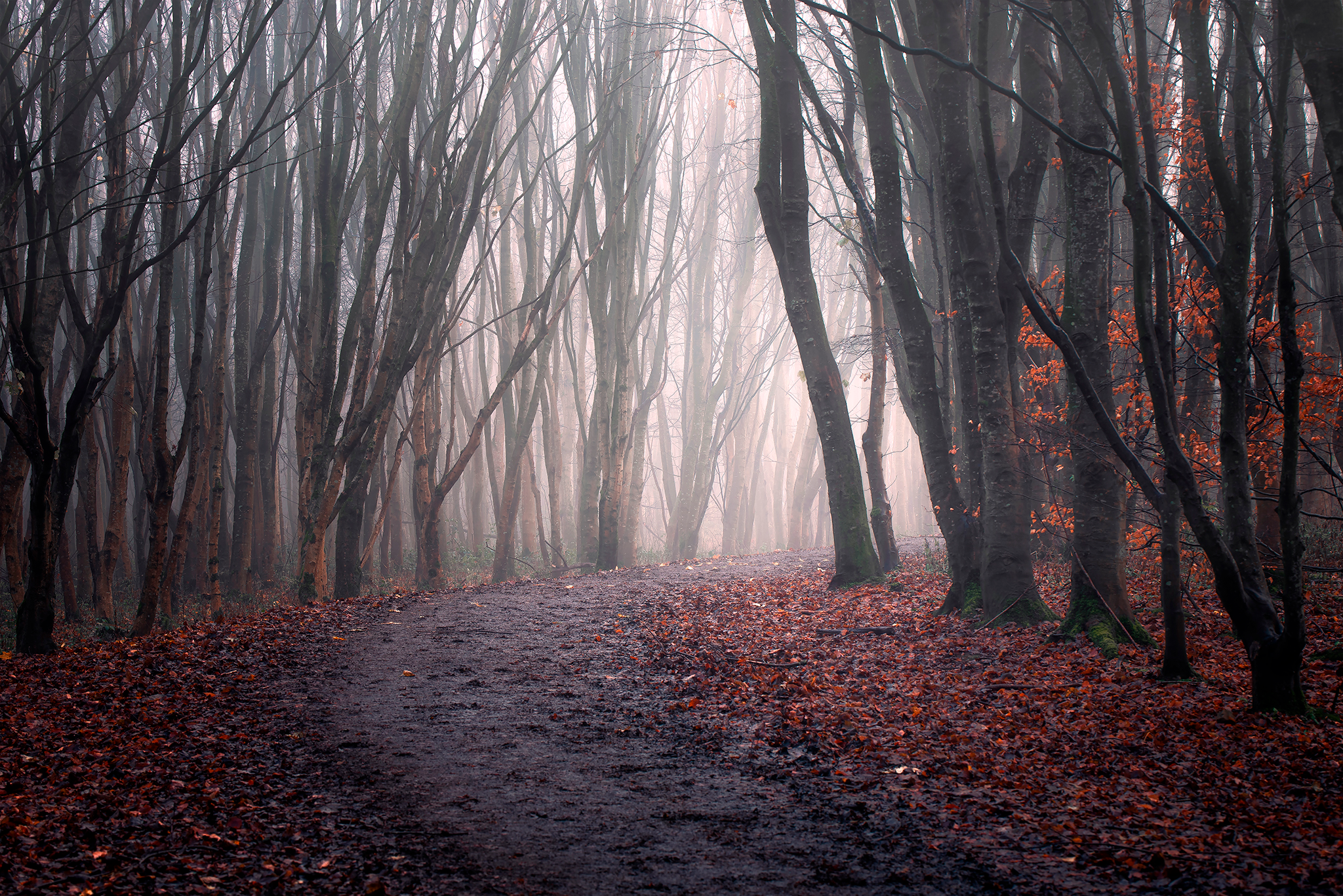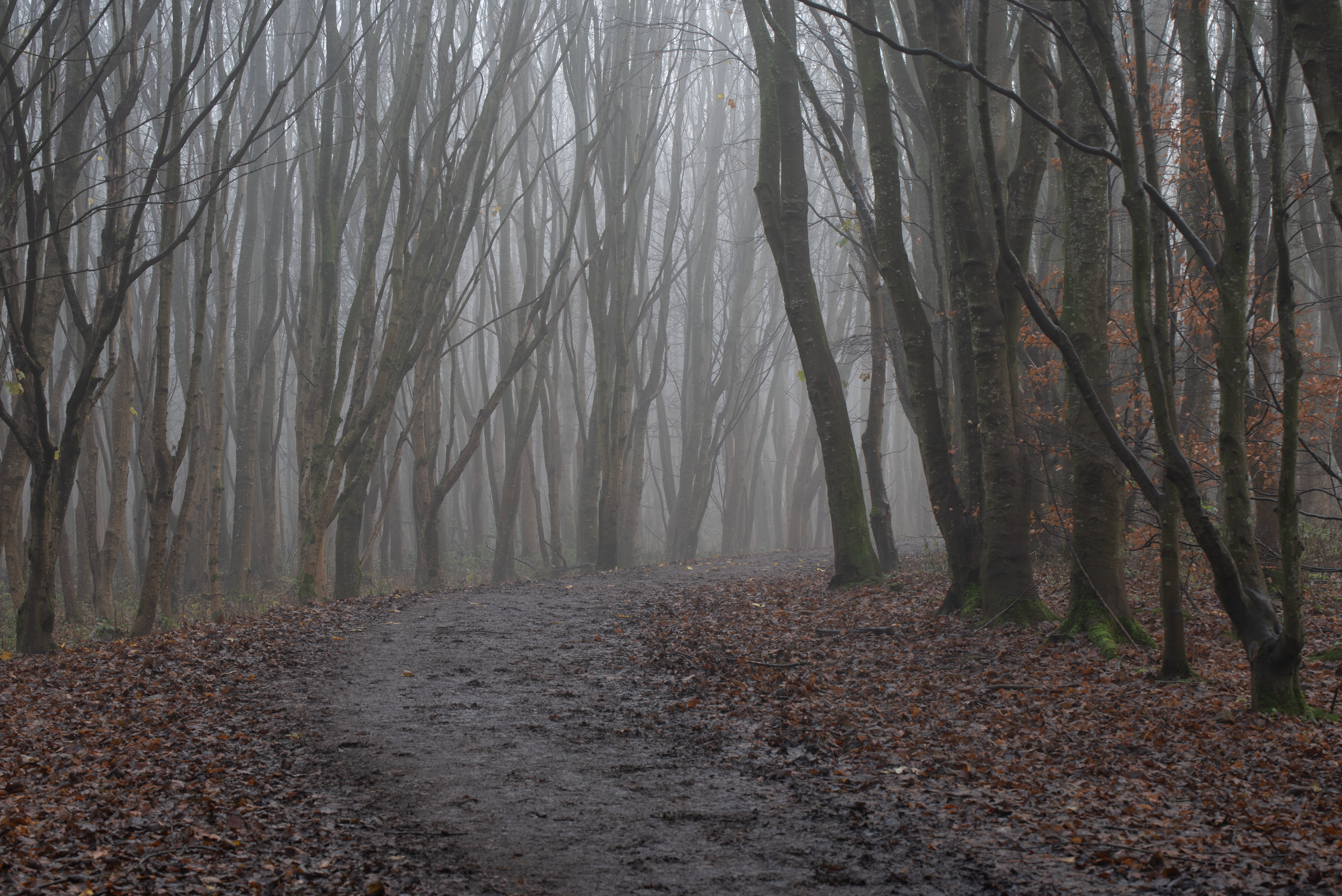Cheating? or Creative?
Saturday, 22nd, May, 2021.


This is an out of camera shot, shot in RAW format with a custom flat picture profile in order to get as flat an image as possible in order to squeeze as much dynamic range as I could from the scene in a single shot using this camera, (Nikon D750), I do this because I know I'm going to process the photo myself rather than let the camera do the processing for me. also, the final image processed how I seen it in my head when taking the shot, processed using nothing more than dodge and burn techniques, colour adjustments and contrast adjustments. (all things that a film photographer might have done using chemicals and dodge and burn implements in a dark room).
In a world full of online social interaction and in a world with more and more private opinions being ever more public than before there's a tendency for us all to take things a little bit too...seriously! and this is certainly true of the opinions surrounding the use of photoshop as a post processing tool or ("photoshopped" images) if you will. This is very likely going to be a subject most of us as photographers have had "conversations" online about with other people, and regardless of what side of the post processing fence you sit as a photographer you'll have no doubt voiced an opinion on it at some point yourself.
Anyway! As a photographer I've seen myself shy away from using the dreaded swear word in the world of online photography, that word being (yes you guessed it!)... Photoshop!
Photoshop has been part of my work flow for approximately 19years, (14 years before even taking up photography). I studied Multimedia with Web Development in 1999/2000 and picked up a little bit of photoshop, not a whole lot, but enough to get comfortable with the program and some of it's tools. So naturally when starting my photography journey I already had my eye on some of the photoshop techniques used in professional landscape and fine art photography, some of the worlds renowned/award winning photographers (for the most part) all use post processing in one form or another to create their stunning award winning photographs, so chasing this style of photography and having some knowledge of Adobe products, right out of the gate post processing applications were a large part of my photographic journey.
The purpose of this blog post is to try to highlight what post processing means to me and why I see Photoshop or any other post processing software as a creative addition to my photography and not as some people might see it... a cheat!
Before we get into why I think post processing is important as a creator lets try this. Hands up those of you who've heard of Andreas Gursky!? or heard of his famous photograph - 'Rhine II' - The photograph that came to be the most expensive photograph in the world selling for a cool $4.3 million!?
‘The Rhine II’ - 1999 Andreas Gursky born 1955 Presented by the Friends of the Tate Gallery 2000 http://www.tate.org.uk/art/work/P78372
Regardless of your personal opinion of this image it's considered to be the pinnacle of the work of Andreas Gursky, an artist considered by many to be the master chronicler of the modern financial/capitalist world using the medium of photography. this particular image was a simple image of the Rhine just outside of Dusseldorf in Germany, which had a factory, some trees, electrical pylons, and as far as I believe some dog walkers too. below is a recreated photo of this location, believed to be taken from the exact spot Gursky took his famous shot.
A replication of where the photo was believed to have been taken. (sourced) https://forum.lowyat.net/topic/2911707 [May, 13th, 2021].
And as you can see from the recreated photo and the Gursky image, much of the man made structures have been removed, only the pathways remain. Gursky took this Photograph with a medium format film camera and scanned it into his PC where he did some quite significant digital manipulation to remove around 40% of the original image. Bear in mind this is an image that sold for $4.3 Million in 2011 and is resident in the Museum of Modern Art today (although not on public display at the moment). So ask yourself! is this cheating? or is Gursky being creative here? The finished image doesn't really appeal to me as a "great" photograph personally, but since art is subjective, the image definitely has merit based on it's creative process. and selling for nearly 4 and a half million dollars proves that digital post processing or manipulation absolutely has its place in modern fine art photography just as the new chemicals and materials had their place in developing film throughout the decades of early film photography, or mirrors had there place in the formation of the early modern cameras. digital processing is just the natural evolution of photography as an art form. Large scale NFTs will no doubt take over from photography as a desirable collectable artform. just the same as photography took over for paint and canvas. they will still both exist, but digital art might well be the dominant artform in the years to come. (watch this space)
So my point being that in the early days of digital photography new tools and techniques (like 'clone stamp' or similar was most definitely used here by Gursky) these tools were developed in order to manipulate a photograph in the same way master photographers like Ansel Adams did with film like dodging and burning tools or layer masks in place of a pair of scissors and cello tape to create composite images to create graphic designs and advertising campagns, exposure sliders in place of stronger chemicals or more sensitive films/plates. these programs are all tools created for the purpose of giving a digital photographer the same (or better) control over the developmental stage of their image. I personally shoot in RAW 100% of the time, my images come out of the camera flat, lacking in colour or contrast. so I can develop my digital image in a digital darkroom (Lightroom or Photoshop) just as I would have to have done in the days of film except I would've had to develop my analogue film in an analogue darkroom. but today I have so much more control over the final image than I would have if I ever shot film (NOT necessarily better final images), but I'd certainly have more control and more options over how I want the final image to look.
Dark room sink - v - Light room sink
In conclusion, I understand the argument that an over processed image is no longer considered to be a true photograph for some people and in some cases I agree, the way I like to classify it for myself when I'm offering my own work online is that if it's a snapshot or a tweaked photo with minimal adjustments (global exposure adjustments) I'll call it a 'photo' , if it's been processes in a way that the photo has been altered, (Clone stamp, colour grading, plug-ins or composite) I'll call it an 'image' . but all in all I just appreciate other peoples work for what it is, (what I see), it doesn't really matter if it's a "photo" or an "image" it's the final product that we all see and you either like it or you don't. but if someone has put effort into creating something that they seen in their own imagination then in my eye's, that's most certainly creativity!
Never cheating.
Sylvan
Facebook - https://www.facebook.com/dynamicscotlandphotography
Instagram - https://www.instagram.com/dynamic_scotland_photography/
Twitter - https://twitter.com/DynamicScotland
Website - www.dynamicscotlandphotography.com
Or e-mail me on dynamicscotlandphotography@yahoo.com



![A replication of where the photo was believed to have been taken. (sourced) https://forum.lowyat.net/topic/2911707 [May, 13th, 2021].](https://images.squarespace-cdn.com/content/v1/611e481a3b0e7c6c9163f937/1633202860353-1Y2PG6BGTNOSUZ7KHZXV/Andreas+Gursky+-+Rhine+II-replicated.jpg)
